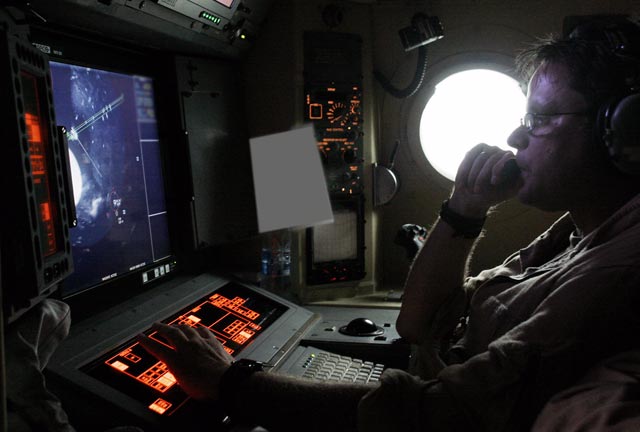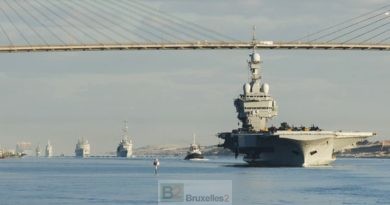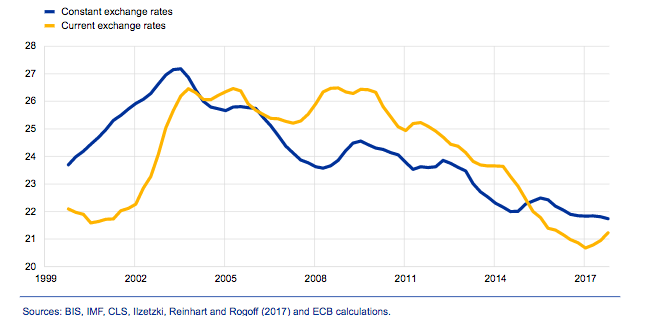Atalanta targets pirates on land: all the explanations (well almost :-) (maj2)

(BRUSSELS2, exclusive) All EU member states that had made parliamentary reservations to the extension of the EU's anti-piracy operation (Eunavfor Atalanta) - have lifted them: the UK, the week last (parliamentary reserve), Spain more recently (alert reserve) and Germany as well. " Germany is expected to lift the reserve tomorrow and will be fully involved in the operation said Pedro Morenes, the Spanish Defense Minister, during a press briefing.
Calendar and geographical extension
The extension of the operation concerns both the duration of the operation, extended until December 2014, and its geographical area, which reaches Somali territorial and internal waters (ports, waters between the coast and the islands) like its coasts (the beaches). This point should then normally be approved without debate, with the "A points" on Friday. (Maj: This extension was adopted without firing a shot by the "27" Friday morning).
Details in the operation plan (Oplan)
This decision sets a general framework; it does not specify the operating procedures for preventing pirate attacks. The details of the plan "aggressive" will, in fact, be set out in an operation plan which should be approved next week by the PSC (Political and Security Committee). The two decisions are part of the same "package" which has already been prepared. And , normally, barring a last-minute incident, the operation commander will have new rules of engagement and action at the start of next month to prevent certain pirate attacks.
Staffing issues resolved...
It should be noted that the Eunavfor Atalanta operation has recovered its minimum level of action. For several months - December to March - it actually suffered from understaffing. But currently, there are five boats in the area (2 Germans, 2 Spaniards, 1 French). And this figure could rise to 9 in the coming weeks. " There is a real effort made by the Member States in order not to relive the difficult situation experienced from December to March”.
A decision that took longer than expected
The decision took a little longer than expected. Because there was a real will of all the countries involved, to maintain the cohesion of the operation explained a case expert to B2. It is one of the rare operations where there is no caveat (use restrictions) from a Member State. And we are doing everything to keep it that way." Member States also wanted absolutely have the notification from the Somali government to the secretary general of the UN » authorizing the incursion into the territory. And, internally, it took... a little time for the letter to the Somali authorities to pass through the hierarchical circuit and bear the signature of the High Representative. A European diplomat modestly admits: this takes time ».
last german question
According to other sources, Germany has not formally established a reserve, but there is still a "german question ". A discussion is engaged in Germany at the political level between several parties (Greens and Liberals in particular). But German diplomats in Brussels assured their European counterparts that they did not intend to block the decision. NOW, " everything is possible - assures a European diplomat - " a State can always ask for a new discussion”. Hence a certain confusion of minds and information that still circulated today according to the sources interviewed.
In fact, according to a senior European diplomat, consulted by B2, the questions seem to be shared. The government has an obligation to come and bring all the information it wants to its parliamentarians, in particular to the Bundestag. The European military fear that too much information will be communicated in this way. The German Secretary of State for Defence, G. Schmitt, thus had to do educational work and reassure his European counterparts that he would not divulge any operational secrecy. " Everyone was thus able to be reassured ».
Visit of the "EU Commander" to Germany and Spain
Rear Admiral Potts, who commands the European operation Atalanta, should also go to Spain and Germany - two of the most reluctant countries for the operation - to explain the limits of this extension and answer all the questions that may still be current in these countries.
A long-term prepared action
Much has been said about this intervention on land. And it is important to clearly specify what is involved in this more offensive mode. For those who have followed (or have not followed) the whole history of the fight against piracy carried out by the European Union, this discussion of more offensive modes is not new.
L'anti-piracy action becomes more robust at sea
The previous chief of operation, Howes, had offered ministers several options for moving to more determined action against the pirates. A similar debate had also taken place on Place Schuman (European Union) and Boulevard Leopold (NATO), in order to have coordination between the two organizations on the ground.
These options had been numbered from 1 to 5. Options 1, 2, 3 and 5 had been adopted and aimed at more robust action at sea: in particular by cutting off the retreat of pirate skiffs towards the Somali coast, or by removing some of their means of action (destruction of engines or skiffs); by neutralizing the mother ships; by delaying as much as possible the return to the coast of vessels taken hostage; and even attempting a recapture of these ships (when the entire crew was safe in the citadel).
All actions which have already been implemented by vessels operating in both EU and NATO operations and which have had a definite effect on reducing piracy.
The refusal of an action ashore
But action 4 (intervention on land) had aroused strong reservations from the States and had to be abandoned. Nobody wanted to have men, even special forces on the ground. Because " no member state really wants to get involved militarily in Somalia”. This is why a "4 bis" option, one might say, has been reworked. It is no longer a question of going ashore, but of using maritime resources to target pirate logistics "plots", according to operational terminology, without putting a "boot on the ground" according to established military jargon. According to our information, the territorial limit has been set at 2 km.
Now, nothing prevents a member state that wishes to send its special forces ashore (NB: as the French did to arrest pirates). But he then does so under his national responsibility, not under the European flag. States can at any time leave their European cap immediately and at any time, even for 10 minutes, then return to the operation ».
Objective to break the model of piracy
Maritime means
The means used will be those of the maritime operation. The action will be carried out from the ships or with the helicopters on board, which allows greater precision. There will thus be no planes or bombardments. The objective is to avoid any collateral damage. This is an imperative condition set by the operation commander and which many governments have set for this extension. As Pedro Morenes (the Spanish Minister of Defence) recalled, " we don't want collateral damage, no injury to people. And hackers are people too ". For us, " it is also important that the forces involved in the operation do not take risks “, he added, thus taking a cautious position very close to Germany.
Avoid collateral damage
This condition, we are very aware of its imperative aspect. " Even if we cannot guarantee it 100%, all precautions will be taken to avoid any collateral damage - says our expert - by having prior reconnaissance and information”. You also have to see that what is targeted are the pirate depots, a few barrels of fuel, 4x4s and skiffs, with ladders, placed on a beach. These deposits are sometimes kept but not always. The operation commander and the commander of the ship conducting the operations will have full power to stop an offensive action until the last moment. And, preferably, visual contact with the intended target should be able to be maintained, a soldier told B2.
Risk of confusion with discarded fishermen
The risk of confusing them with deposits of "honest fishermen" could exist - in theory -. But, in fact, a certain number of clues (the 4x4s, the ladders, the number of petrol barrels, the absence of fishing nets - allow us to make the distinction between a pirate "plot" and a stockpile of fishermen. And the myth of the pirate fisherman who sometimes fishes, sometimes pirates, is well done ". « We deal with organized, professional and structured teams. It is a well-managed economic business”. In practice, fishermen are often located in villages; while the pirate deposits are located rather outside inhabited areas.
Well-marked pirate "plots"
"We know the pirate bases perfectly, where they are installed", which reduces the margin of error, the Spanish Minister of Defense has publicly stated. How many bases are there? A Spanish journalist cites a precise figure: 19 bases. We have sought to verify this figure. No one officially confirms this. But it is a fact, the bases have been identified and seem perfectly known to the military. " It's an operational secret confided to us, at the end of the meeting, a European official familiar with the matter.
Because indeed, for several years now, the maritime patrol planes deployed in the area (both from NATO and the EU), the boats which sail regularly up and down the Somali coast, as well as "other" information have made it possible to trace and know the different pirate locations, whether they are logistics depots, "ports" where the boats taken hostage are held, as well as the different exits to the open sea. When a French Falcon 50 is based in Djibouti, like a Spanish or German P3 Orion, it is not " not to count schools of dolphins 🙂” a soldier we interviewed said a few days ago.
Disrupt Pirates
This is the main objective of the operation. " The goal is to break the organization model of pirates. This breaks the pirates' feeling of impunity, it disrupts their logistical structure ". Even before having fired a first shot, this objective could be achieved. Knowing the European will - and the new means given to the military - pirates could less often consider Somali beaches and coasts as a safe place. They could thus be obliged to move the camps, for example towards the interior (NB: where there are other risks for the pirates: the other clans, the Al Shabaab, the armed forces...) or to put more guards at their camps. " If we manage to put a grain of sand in the pirates, we have already won a point. explains our expert.
Read also:



Comments closed.